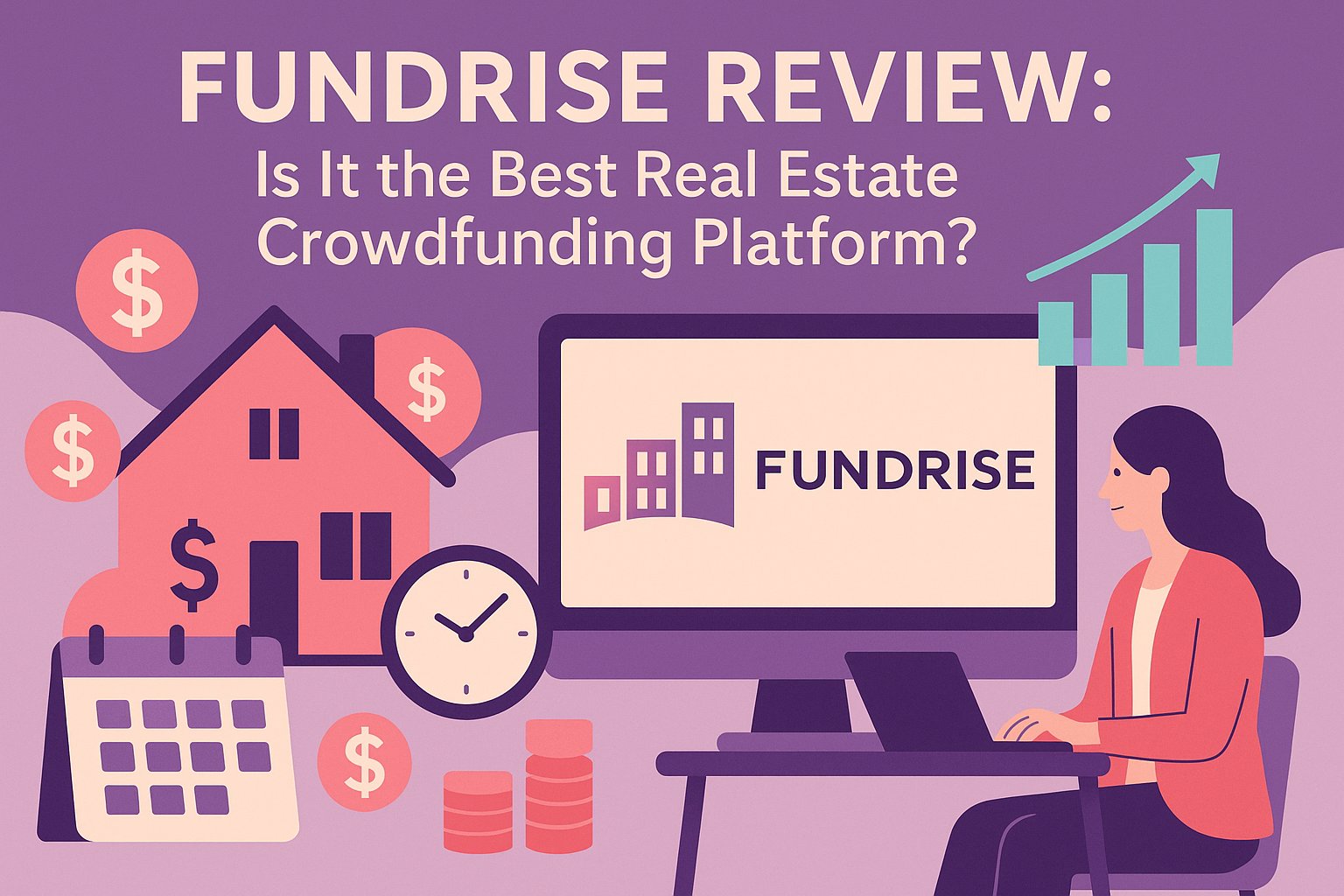Embracing the World of Real Estate Crowdfunding
For many aspiring investors, traditional real estate ownership can seem daunting: high purchase prices, complex management responsibilities, and opaque market entry points often act as formidable barriers. RealtyMogul, however, has transformed the landscape by offering a streamlined, accessible way to participate in property deals through crowdfunding. By combining digital convenience with rigorous underwriting, RealtyMogul empowers beginners to dip their toes into the commercial and residential property markets without the headaches of landlord duties. In this comprehensive guide, we’ll walk you through the entire user experience—from signing up to tracking your returns—so you can confidently embark on your real estate investing journey.
First Steps: Creating Your RealtyMogul Account
Before diving into investment opportunities, you’ll need to establish a RealtyMogul account. The process starts by visiting RealtyMogul’s website and clicking on the “Sign Up” button prominently displayed at the top of the homepage. You’ll be prompted to enter basic personal information—your name, email, and a secure password—followed by a brief questionnaire designed to assess your investing profile. This questionnaire covers factors such as your financial goals, risk tolerance, and prior investing experience. While it may seem time-consuming, completing these steps helps RealtyMogul tailor recommended opportunities to align with your objectives.
Once your basic information is submitted, you’ll undergo identity verification to satisfy regulatory requirements. This process involves uploading a government-issued ID and providing proof of address. Given the platform’s focus on accredited investments for certain offerings, you may also be asked to confirm your accreditation status if you intend to access higher-tier commercial real estate deals. Newly registered accounts typically gain full platform access within a day or two. By the time you receive your confirmation email, you’ll be ready to explore RealtyMogul’s curated selection of properties and investment vehicles.
Diving Into the Dashboard: Finding Your Way Around
Upon logging in, you’ll be greeted by RealtyMogul’s intuitive dashboard, where key sections are laid out in a clear, user-friendly interface. At the top, a navigation bar grants access to “Marketplace,” “My Investments,” “Resources,” and “Profile Settings.” The Marketplace tab is your gateway to active offerings, including debt deals, equity deals, and REIT options. Each listing features a thumbnail image of the property, a concise summary of projected returns, and a clickable “Learn More” button for in-depth details.
Scrolling down the dashboard reveals an overview of your portfolio—if you’ve already committed capital—as well as any pending commitments awaiting funding. Under the “My Investments” tab, you can monitor performance metrics, view quarterly reports, and track distribution schedules. For first-time users, the “Resources” section provides a wealth of educational content, from video walkthroughs explaining basic terms like internal rate of return (IRR) to blog posts analyzing market trends. Using this dashboard, you’ll quickly learn how to filter listings by property type, sector, or geographic region, allowing you to pinpoint deals that align with your investment thesis.
Picking Your Path: Investment Offerings Explained
RealtyMogul’s investment universe spans several categories, each tailored to different risk profiles and return objectives. At the entry level, you’ll find the platform’s flagship private REIT, often referred to as the RealtyMogul REIT. This closed-end fund pools capital to acquire and manage a diversified portfolio of commercial properties, distributing dividends quarterly. For beginners, investing in the REIT can be an excellent way to gain broad exposure without selecting individual deals.
If you’re comfortable with a bit more involvement, RealtyMogul also offers individual commercial debt and equity deals. Debt investments function like secured loans: you provide capital to a sponsor at a predetermined interest rate, and your principal is returned when the loan terms conclude. Equity deals, on the other hand, grant you partial ownership of a specific property—ranging from multifamily developments to industrial warehouses. These equity offerings typically target higher returns but carry greater risk, as your returns depend on the property’s performance and eventual sale.
Recently, RealtyMogul introduced a Student Housing REIT and various Regionally Focused Funds, enabling investors to zero in on niches such as student accommodation or high-growth metropolitan areas. Each offering comes with a detailed investment summary: projected cash yields, hold period estimates, sponsor track record, market analysis, and risk factors. By reading these materials and leveraging RealtyMogul’s educational articles, you’ll gain insights into capital stack structures, sponsor incentives, and potential exit strategies. As a beginner, it’s wise to start with more conservative vehicles and gradually expand into niche sectors once you’ve built confidence.
Monitoring Performance and Staying Updated
One of the hallmarks of RealtyMogul’s user experience is its commitment to transparency. After you’ve made an investment, the “My Investments” screen becomes your go-to hub for ongoing performance tracking. Here, you’ll find period-to-date returns, cumulative distributions, and the current estimated property valuation. RealtyMogul’s quarterly reports offer deeper insights, detailing occupancy rates, rent escalations, local market trends, and any significant property improvements or refinancing events. These updates are delivered directly to your inbox and archived in your account’s document center, ensuring you never miss critical information.
Beyond formal reports, RealtyMogul’s platform occasionally hosts live webinars featuring sponsor Q&A sessions, market outlook presentations, and deep dives into specific asset classes. By attending these sessions, you’ll gain real-time perspectives on factors affecting property performance—such as emerging supply chain issues for industrial properties or demographic shifts impacting multifamily occupancy. Additionally, RealtyMogul’s blog regularly publishes articles on topics like inflation’s impact on cap rates or the latest innovations in commercial real estate technology. Staying engaged with these resources can sharpen your investment acumen and provide a clearer understanding of when to hold, sell, or reinvest.
Understanding Fees, Returns, and Risk Dynamics
Investing via a crowdfunding platform inevitably comes with fees, and RealtyMogul is no exception. For private REIT investments, the platform charges an annual asset management fee—typically 1.00 percent—alongside a potential incentive fee based on performance benchmarks. For individual debt or equity deals, you’ll encounter both an acquisition fee and an annual asset management fee, which vary by sponsor and deal structure. While these fees cover due diligence, underwriting, and ongoing asset management, they can impact net returns. As a beginner, it’s essential to carefully review each deal’s fee schedule and compare projected net internal rates of return to alternative investment options.
Projected returns on RealtyMogul offerings generally range from 6 to 10 percent annualized for debt deals and 8 to 15 percent or higher for equity deals, though individual results may vary based on market conditions and sponsor execution. Real estate’s steady cash flow and potential appreciation can offer stable, uncorrelated returns compared to equities. However, you must remain mindful of risks—such as regional economic downturns, changing interest rates, or tenant vacancy spikes. The hold period for most deals spans three to five years, meaning your capital remains tied up until the property disposition or loan repayment. Exit timing often depends on sponsor strategy, local market liquidity, and macroeconomic factors, so patience is crucial when allocating funds to real estate crowdfunding.
Strategies to Enhance Your RealtyMogul Journey
As you gain familiarity with RealtyMogul’s ecosystem, consider adopting a few strategies to optimize your experience. First, diversify across multiple offerings to mitigate concentration risk. Rather than allocating a lump sum to a single equity deal, you could split resources between the private REIT, a commercial debt note, and a niche fund—thereby spreading exposure across different property types and markets. This approach can buffer your portfolio against localized sector downturns and smooth out cash flow variability.
Second, leverage dollar-cost averaging: invest smaller amounts regularly instead of one large contribution. This tactic can help mitigate the impact of market timing. For instance, if you plan to invest $25,000 over the course of a year, consider dividing that capital into quarterly contributions. By doing so, you reduce the risk of committing all funds during a market peak, potentially improving your overall yield as property valuations fluctuate.
Third, stay proactive in your education. RealtyMogul’s Resource Center hosts a trove of articles on real estate fundamentals, tax implications, and sponsor profiles. Devoting time each month to reading these materials can deepen your understanding of market drivers—such as shifts in consumer behavior, construction cost inflation, or zoning policy changes. When a sponsor’s quarterly report mentions renovation progress or refinancing plans, your prior reading on local market data will enable you to interpret whether the update signals strong performance or potential headwinds.
Lastly, engage with RealtyMogul’s customer support and community features. Although the platform does not offer direct financial advice, its team can clarify platform-specific questions, walk you through document requirements, and explain terminology in plain language. A quick phone call or email can save you time and prevent avoidable mistakes, especially when uploading KYC documents or navigating the initial investment process. By combining proactive communication with your own due diligence, you’ll build confidence and cultivate a more resilient investment mindset.
Charting Your Course: Next Steps for Aspiring Investors
Stepping into real estate crowdfunding for the first time can feel both exhilarating and a bit intimidating. RealtyMogul’s user-friendly interface, transparent performance tracking, and robust educational resources transform that uncertainty into a guided journey—one where each click brings you closer to seasoned, data-driven decision-making. As a beginner, remember that real estate investing is a marathon, not a sprint. Embrace each quarterly update as an opportunity to learn, celebrate small wins when distributions arrive, and view market downturns as reminders to revisit your long-term strategy.
Looking ahead, consider graduate participation beyond the private REIT: delve into debt deals that align with your income needs, or explore creative equity opportunities that promise higher upside potential. As you watch your portfolio evolve, adjust allocations to reflect changing macroeconomic conditions—perhaps shifting toward higher-yield assets during periods of rising interest rates. Over time, your RealtyMogul account could serve as the foundation for a diversified real estate portfolio that complements your broader financial plan, delivering passive income, capital appreciation, and portfolio resilience.
Whether your goal is generating supplemental income, funding retirement, or simply building wealth through tangible assets, RealtyMogul offers a straightforward, engaging path to support your ambitions. By leveraging the platform’s curated offerings, educational tools, and community insights, you’ll navigate the complexities of property investing with confidence. Your next step? Log in to RealtyMogul today, explore current offerings, and take that first decisive step toward a more diversified, real estate–rich future.




